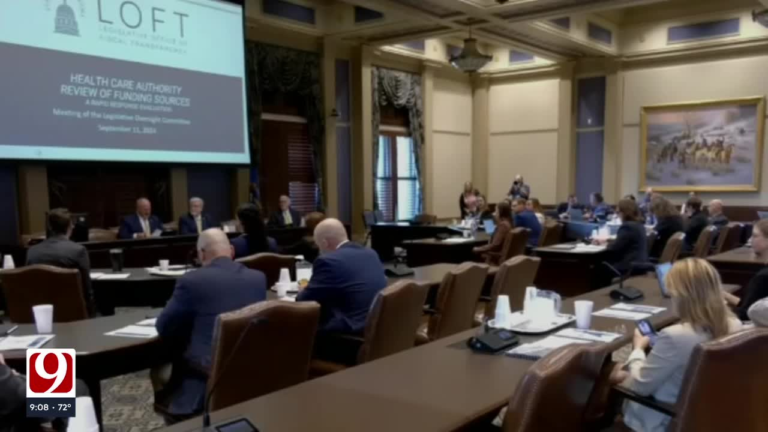The Legislative Office of Fiscal Transparency (LOFT) recently examined how the Oklahoma State Department of Education (OSDE) manages the distribution of specific funds essential to public school operations.
Rep. Kevin Wallace (R-Wellston) announced the investigation on Aug. 15 and emphasized that the focus is on transparency and ensuring the proper use of funds allocated by the legislature and by the federal government. The investigation was supported by the Speaker of the Oklahoma House of Representatives, Charles McCall (R-Atoka).
In July, Some school districts reported delays, inconsistent communication, and uncertainty around budgeting due to OSDE’s practices. Bixby superintendent Rob Miller tweeted during the OSDE monthly meeting that there had been a great deal of confusion surrounding Title I funding information that should have been provided to the districts in May.
Title I is a federal program that helps low-income students.
Takeaways From The OSDE Report
1) Delays in Fund Distribution:
LOFT’s investigation focused on the statutory requirements for Title I funds, how OSDE follows these directives, the timeliness of fund disbursement, and the clarity of communication with schools.
OSDE experienced significant delays in disbursing federal Title I Part A funds, which are critical for schools with high numbers of low-income students. As of October 2024, many districts were still awaiting approval or had incomplete applications, partly due to OSDE not releasing preliminary allocations, a practice of previous administrations that helped schools plan earlier in the year.
Additionally, OSDE staff noted they were unaware that past administrations provided preliminary allocation figures early in the year, which created added delays when this year’s final allocation was released later than expected. LOFT found that OSDE’s lack of transparency on application processing timelines further compounded districts’ frustrations.
Communication Issues with Districts:
The report pointed to inconsistent communication from OSDE, particularly regarding timelines for processing applications and disbursing funds. Many districts faced budgeting uncertainty due to limited information on the status of their funding applications, leading to frustrations and operational challenges for schools that rely on timely financial support.
“SDE employees were unaware that the prior administration had given districts early notice of allocation figures (preliminary allocations) in prior years. The agency was overconfident in their belief that these communications had never occurred, and consequently, they dismissed legitimate complaints from districts.”
LOFT’S Policy Recommendations For The Legislature and OSDE:
The Legislature may consider the following policy changes:
• For new programs or legislative mandates, require the State Department of Education to publish an initial plan for implementation within 90 days of the program’s effective date.
• Specify in budget limit bills any funds that have the flexibility to be used by the State Department of Education to fund other specific statutory obligations.
The State Department of Education should:
• Review all new legislation by July 1 of each year to identify an implementation strategy for new programs. The plan should include soliciting feedback from school districts, where appropriate, to identify potential problems with implementation.
• Increase written communications to school districts to include:
- The total preliminary state allocation from the federal government compared to the prior year, serves as an indicator of whether schools should anticipate a reduction or an increase.
- Notification of whether districts should expect to receive per-district preliminary allocations and an anticipated timeline for when final figures will be available.
- Establish written policies and procedures for each division within the agency to ensure continuity of operations in the event of turnover. This should include an annual communication schedule.
- Prior to communicating a plan to districts for implementing a program, ensure alignment of all departments that will be involved in the program.
- Immediately seek written legal guidance when the agency identifies conflicts in the statute.

